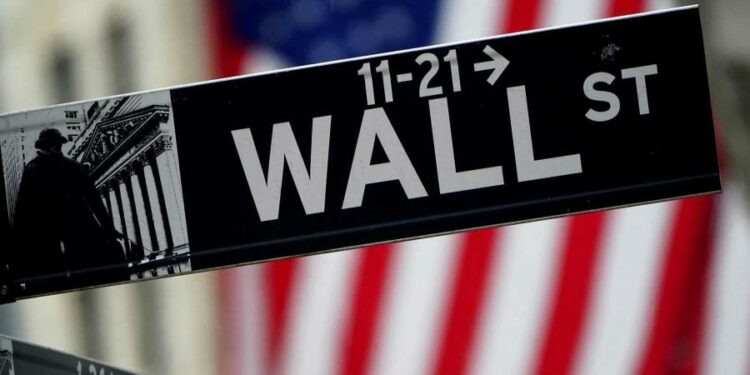Global stocks rallied at the end of a turbulent week after China unveiled fresh stimulus measures to fight a growth slowdown in the world’s biggest emerging market.
Wall Street’s benchmark S&P 500 share index rose 1 per cent in morning trading and the technology-heavy Nasdaq Composite climbed 1.2 per cent. Europe’s regional Stoxx 600 share index added 1.4 per cent, following gains in Asia.
The moves in response to China cutting its benchmark mortgage lending rate punctuated a long downtrend for global stocks, driven by jitters about higher interest rates, acute inflation and slowing economic growth.
The S&P was on Friday still headed towards its seventh straight week of declines — its longest losing streak, on this basis, since the dotcom bubble burst in 2001, according to Refinitiv data.
“Markets are in a slow grind downward,” said Gregory Perdon, co-chief investment officer at Arbuthnot Latham. “It’s a combination of fear of a [Federal Reserve] mistake, if they raise rates too quickly, and fear that this inflationary trend is going to eat into spending, which then leads to a reduction in companies’ earnings.”
In Asia, Hong Kong’s Hang Seng index added 3 per cent and Japan’s Nikkei 225 rose 1.3 per cent.
“Beijing wants to rescue the property markets, which have experienced the worst contraction in many years,” said economists at Nomura.
But the Japanese bank cautioned that the impact of cutting the five-year loan prime rate from 4.6 per cent to 4.45 per cent would be “limited”, as “the Omicron wave and draconian lockdowns in around 40 cities have significantly limited mobility, employment, income and the confidence of Chinese households”.
Chinese economic activity plunged last month, during stringent coronavirus lockdowns. Goldman Sachs this week cut its China growth forecast for 2022 to 4 per cent, from a previous projection of 4.5 per cent.
Worries about global growth drove investors to pull money out of stocks, bonds, gold and cash last week, according to EPFR mutual fund data analysed by Bank of America.
Exchange traded fund provider WisdomTree also reported net outflows this week from some of its most resilient equity products, including those that hold baskets of the highest quality companies and those tracking high-dividend stocks that are typically favoured during times of market tumult.
Concerns about the global economy have intensified after the Fed, the Bank of England and other leading central banks raised borrowing costs and signalled more increases to come.
Inflation has soared to multi-decade highs in the US and Europe after economies reopened following coronavirus lockdowns and Russia’s invasion of Ukraine, which disrupted food and fuel supplies. US retailers Walmart and Target this week issued downbeat earnings reports, highlighting how companies and consumers are struggling with rising costs.
The yield on the benchmark 10-year US Treasury note was steady at 2.87 per cent, down from a high last week of 3.2 per cent. Treasury yields, which move inversely to prices, have fallen this week as growth jitters drove traders to seek low-risk assets.
Leading currencies drifted, with sterling up 0.1 per cent against the dollar to $1.24 and the euro 0.1 per cent lower at just below $1.06.











